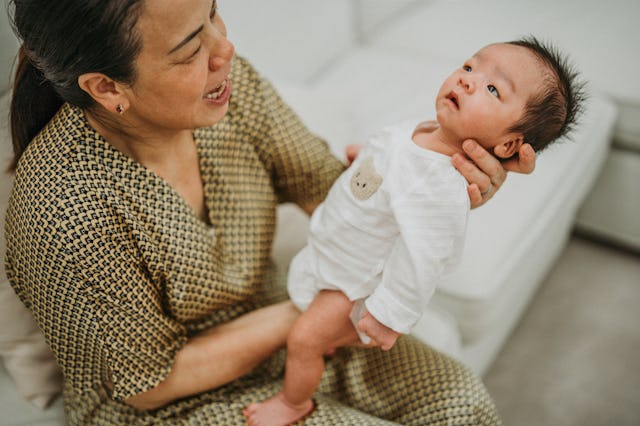New Zealand Released Its List Of Banned Baby Names For 2024
Unlike in the U.S., Kiwis can’t just go around naming their babies willy-nilly...

Though specifics vary by state, throughout most of the United States, there are very few rules about what you can and can’t name your child. I could have named my son Tyrion Lannister and my daughter Discoball Boogiedown and I would have been well within my rights. Certainly, some people really do like to be unique with their baby names: I’m sure many of you know someone who went a little nuts with spelling (Caleb becoming Kaelyyb, for example), or who have tested the limits of what a name is (Rumble Honey, anyone?).
But this isn’t the case everywhere, including in New Zealand: Last year, out of approximately 60,000 births, the Registrar General in the country’s Department of Internal Affairs effectively vetoed 71 requested baby names.
The Births, Deaths, Marriages, and Relationships Registration Act 2021 sets out the criteria the Registrar-General must consider when registering a child’s name. Names must not be offensive, resemble a title or rank, be “unreasonably long,” or include numbers of symbols. Community perception, spelling and pronunciation, and parental reasoning for the name are also considered.
“Before any name is declined, the Registrar-General communicates with the parent or parents and provides the opportunity for them to provide further justification as to why their child should have that name,” the official department statement reads. “The Registrar-General then considers the reasons provided while balancing them against the legislative criteria.”
So there’s wiggle room for sure, but apparently, the following names were all beyond the pale...
- King (This was the most commonly contested name on the list, and inspired other names that were not registered, including Kingi, Kingz, and Kyng.)
- Prince (Also Prinz and Prynce)
- Princess/Pryncess
- Rogue
- Sativa (This name refers to a kind of cannabis. Indica, another type, also made the list.)
- Caesar
- JP
- Allah (And Állah)
- Bishop
- Crown
- Crownos
- Duke
- Emperor
- Fanny (In New Zealand slang, this refers to female genitalia.)
- General
- Ice
- Juke
- Justice
- KC
- Lady
- Magesty
- Major
- Messiah (This name has also been challenged, unsuccessfully, in the United States.)
- Mighty
- Queen
- Royal (As well as Roil and Royalty.)
- Saint (Don’t tell Kim and Ye.)
- Solvreign
Names were also denied if a child was not given a surname or if there was an apostrophe in the name (for example, a name like D’Angelo would have been denied).
Most of the names denied seem to be running up against the “no names that are also titles” rule. It should also be noted that these didn’t have to be first names: In his letter outlining the names the Registrar-General failed to register as originally written, John Crawford-Smith notes “that the names provided in this table can be in any part of the person’s overall name.”
Personally, I fail to see how even the most bonkers middle name could harm anyone. Who even knows your middle name unless you tell them? No one will have to know if you name your child William Astrolabe Smith and it could be a fun little personal tidbit. But I guess that just goes to show I’m just not a Kiwi at heart...
Interestingly, the names Caesar (spelled Cesar), Duke, Justice, King, Major, Prince, Princess, Royal/Royalty are all in the United States’ top 1,000 baby names of 2023 (the last year for which we have data), according to the Social Security Administration. King alone was given to 1,276 babies.
Whether or not one agrees with the department’s reasoning, it seems clear their heart is in the right place when it comes to approving and denying registrations of births.
“We continue to urge parents to think carefully about names,” the notice reads. “Names are a gift. Generally, the name registered will be with the individual for the rest of their lives.”
Sorry, Baby formerly known as Prince.